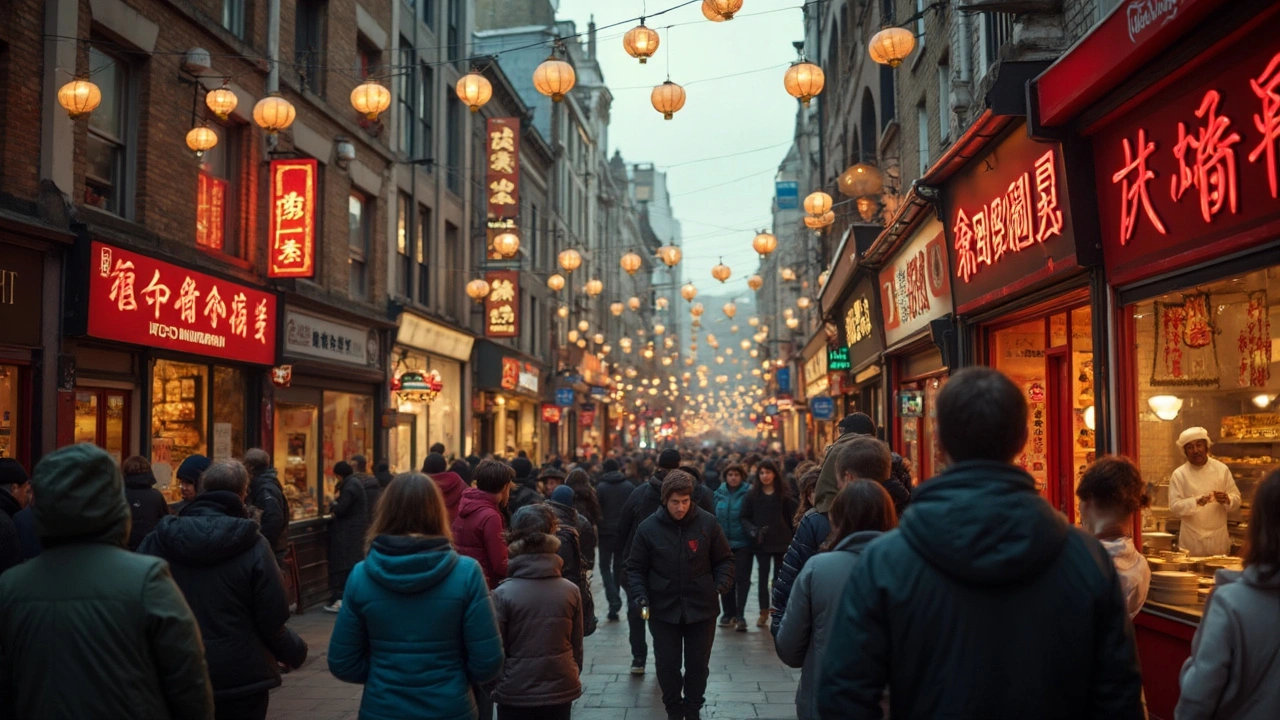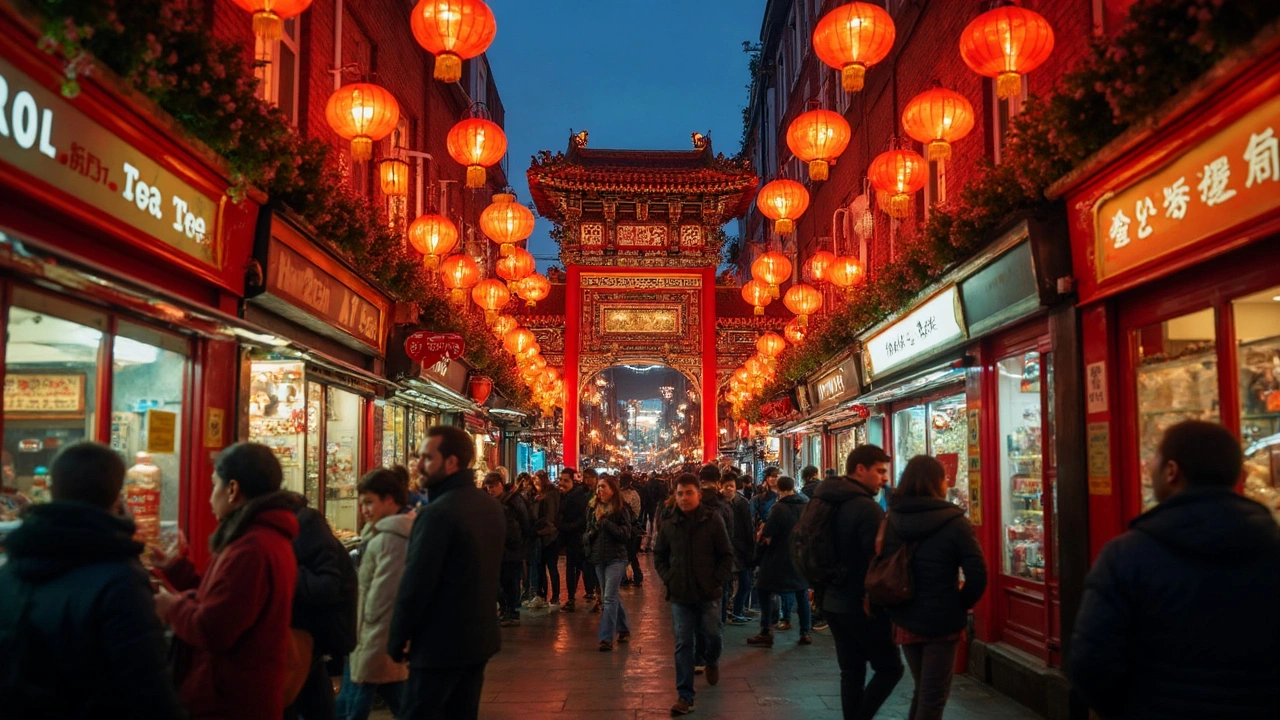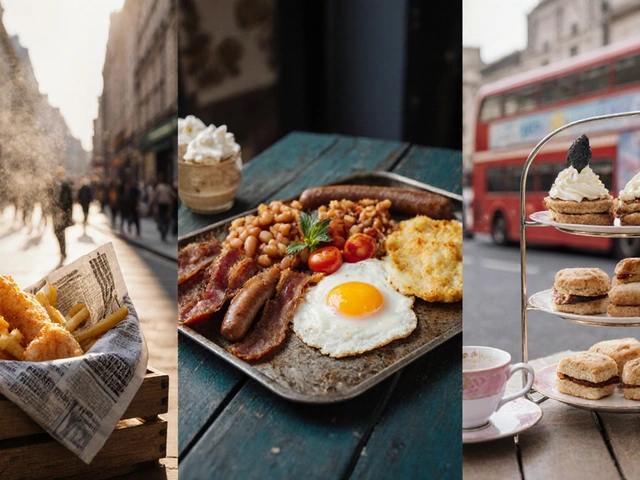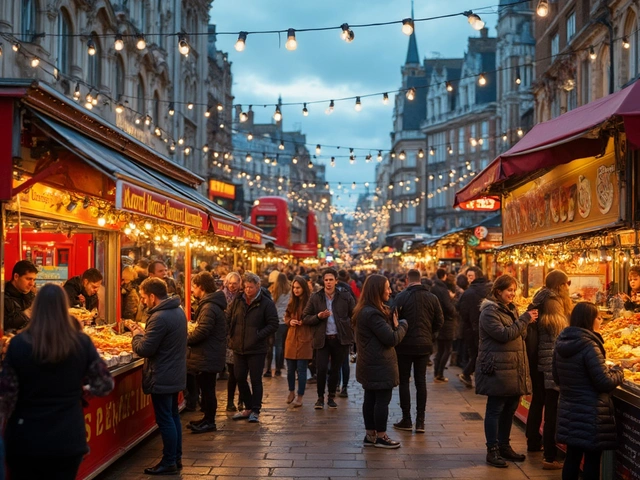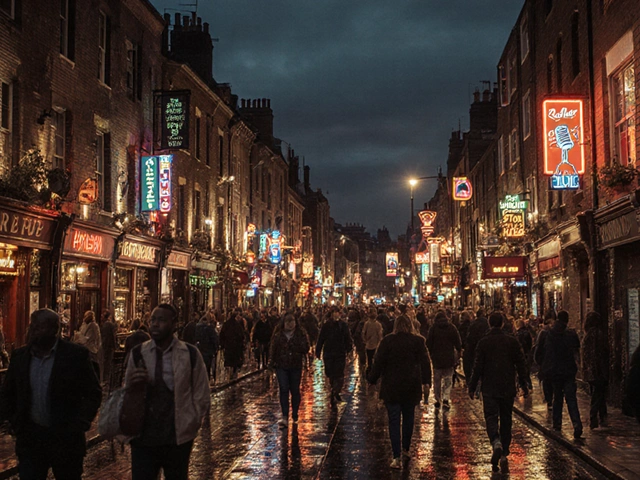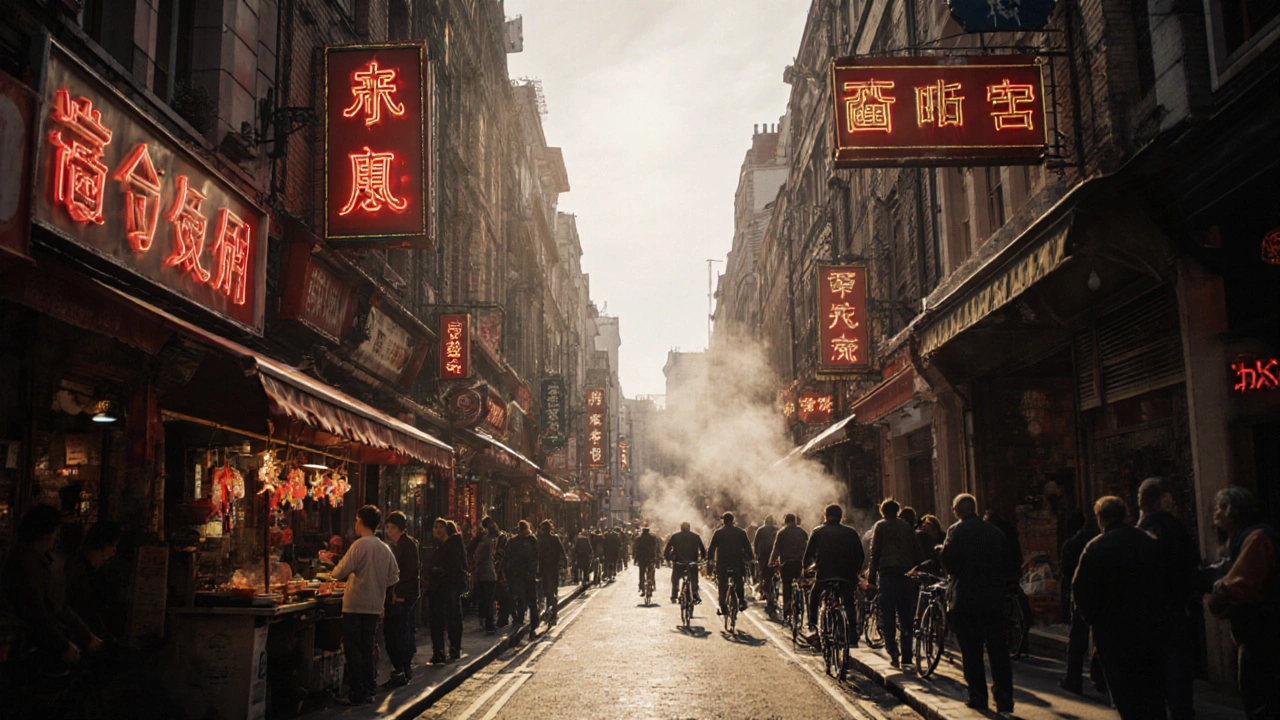
Quick Takeaways
- Head to Gordon Street for authentic dim sum before 11am.
- Four Seasons on Lisle Street serves the city’s most praised Peking duck.
- Golden Dragon’s roast pork and crispy skin are must‑tries for Cantonese lovers.
- For spice, hit the Sichuan hot‑pot spot Spicy Dragon on Wardour Street.
- Don’t miss the bakeries on Newport Place for flaky egg tarts and pineapple buns.
Direct Answer
If you’re hunting the best food in Chinatown London, start with dim sum on GordonStreet, then move to Four Seasons for Peking duck, and finish with a sweet bite from a Chinese bakery on NewportPlace. The area packs a century‑old culinary heritage into a few blocks, so you can sample Cantonese, Sichuan and Shanghai flavours on a single stroll.
Comprehensive Guide to Eating Your Way Through Chinatown London
Walking into London’s Chinatown feels like stepping into a bustling market in Hong Kong. Neon signs, fragrant steam, and the clatter of wok pans greet you as you turn the corner off ShaftesburyAve. Whether you’re a first‑timer or a regular, the neighbourhood offers a menu that spans delicate steamed dumplings, fire‑kissed Sichuan hot‑pot, and sweet bakery treats that melt in your mouth.
Definition and Context
Chinatown London is a compact, vibrant district in the West End, centered around Gerrard Street, known for its concentration of Chinese eateries, markets and cultural festivals. Established after World WarII, it grew from a few family‑run stalls into the city’s premier destination for authentic Asian cuisine. The area reflects the migration patterns of Cantonese, Hokkien and later Sichuanese communities, each leaving a culinary imprint that tourists and locals alike enjoy today.
Why Eating in Chinatown Is Worth It
Here are three solid reasons to make a food pilgrimage:
- Cultural immersion: Every bite carries stories of immigration, family recipes and festivals like Lunar New Year.
- Diverse price points: From street‑side stalls under £5 to fine‑dining rooms where a dish can top £50, there’s something for every budget.
- Freshness and authenticity: Many kitchens import ingredients directly from China, ensuring that the flavors match what you’d find back home.
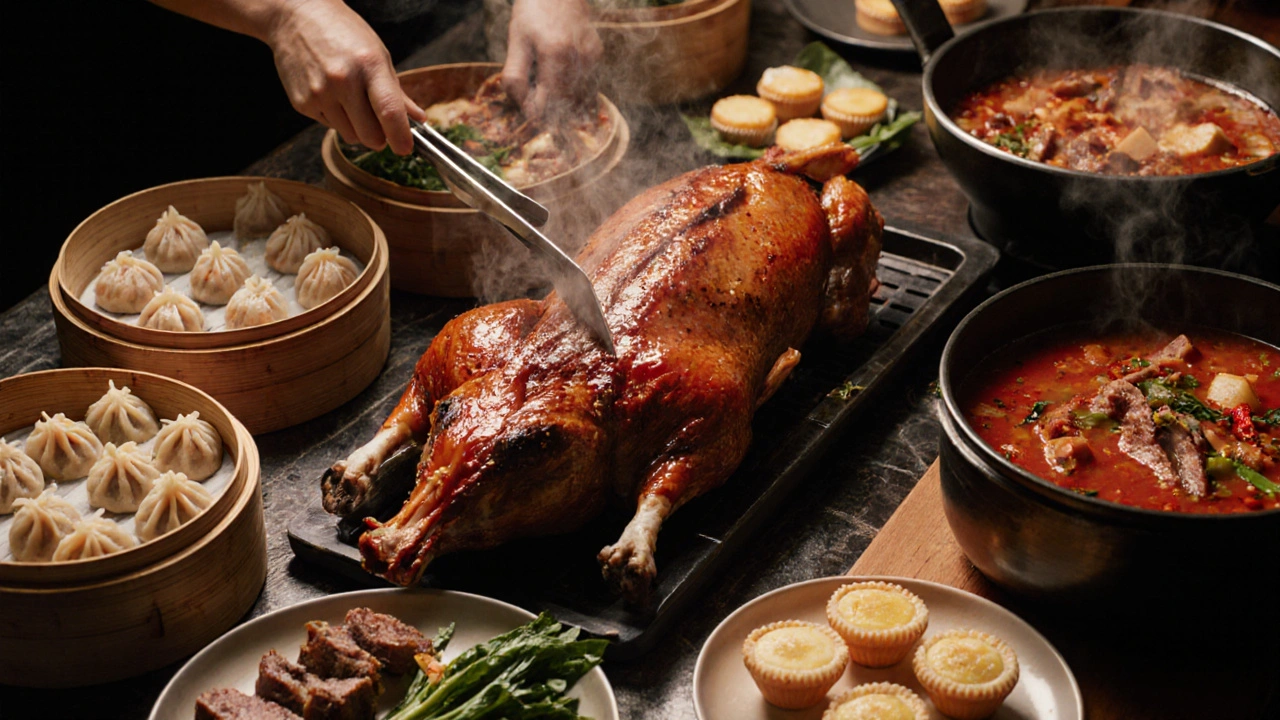
Types of Food You’ll Find in Chinatown
The culinary landscape can be broken down into four main categories:
- Dim sum a Cantonese tradition of bite‑size steamed or fried parcels, often enjoyed over tea - think hargao (shrimp dumplings), siumai (pork & shrimp), and egg custard tarts.
- Peking duck a roasted duck dish from Beijing, known for its crisp skin and succulent meat, served with pancakes, scallion and sweet bean sauce - the star attraction at Four Seasons.
- Sichuan hot‑pot a bubbling broth infused with chilies, peppercorns and numbing Sichuan pepper, into which you dip thinly sliced meat, tofu and vegetables - perfect for group meals at Spicy Dragon.
- Chinese bakery goods soft pastries like pineapple buns, egg tarts and red bean cakes, baked fresh daily - sample them at the NewportPlace bakeries.
How to Find the Best Eats
Finding top spots is easier than you think. Follow these steps:
- Enter via Gerrard Street and look for neon signs advertising “Dim Sum” - these usually indicate a reputable Cantonese house.
- Check the queue: a line of locals before 11am means the dumplings are worth the wait.
- Consult the window menus on Lisle Street; Five‑star places like Four Seasons proudly display their dishes in English and Chinese.
- Use Google Maps’ “food” filter for real‑time reviews; the highest‑rated spots often have 4.5+ stars and photos of steaming baskets.
- Ask a local: shop owners on Gerrard love to recommend hidden gems that don’t make the tourist lists.
What to Expect During a Meal
A typical dining experience in Chinatown blends hustle with hospitality. Arrive early for dim sum; servers push carts packed with steaming trays, and you’ll be handed a small plate to collect what you like. For Peking duck, expect a dramatic tableside carving where the chef shaves the crispy skin onto pancakes. Sichuan hot‑pot involves selecting a broth base, then cooking raw ingredients at the table for a few minutes. Overall, expect friendly staff, open kitchens, and a lively atmosphere that gets louder as the night progresses.
Pricing and Booking Tips
Most eateries operate on a first‑come, first‑served basis, especially for breakfast dim sum (under £10 per person). For table‑service restaurants like Four Seasons, reservations are recommended on weekends; a dinner for two typically costs £70‑£90, including duck, sides and tea. Hot‑pot venues charge per head for broth (around £15) plus a la carte pricing for meat and veg (averaging £10‑£18). If you’re planning a large group, call ahead - most places can accommodate 6‑12 guests with a pre‑order.
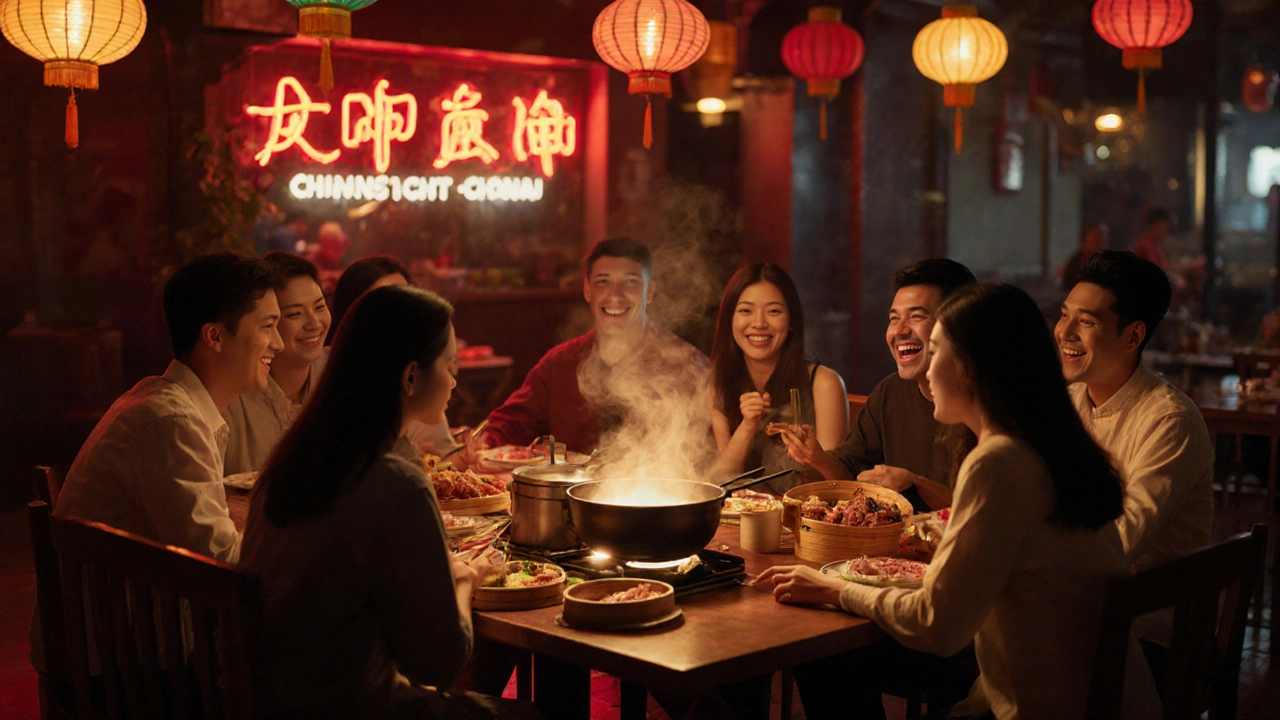
Safety Tips for Food Lovers
- Check that the venue displays a valid food hygiene rating (most high‑traffic places hold a 4‑5 rating).
- Avoid raw or undercooked seafood unless the stall is known for it; reputable places will announce if a dish is served raw.
- If you have spice sensitivity, ask for the heat level before ordering Sichuan dishes-many spots can tone down the chilies.
- Keep an eye on personal belongings in crowded areas; pickpocketing is rare but can happen during festivals.
Comparison Table: Top Restaurants in Chinatown London
| Restaurant | Signature Dish | Cuisine Focus | Price Range (per person) | Best Time to Visit |
|---|---|---|---|---|
| Four Seasons | Peking duck | Cantonese | £35‑£45 | Evenings, Friday‑Saturday |
| Golden Dragon | Roast pork belly | Cantonese | £20‑£30 | Lunch, weekdays |
| Spicy Dragon | Sichuan hot‑pot | Sichuan | £25‑£40 | Late afternoon, group outings |
Frequently Asked Questions
When is the best time to eat dim sum in Chinatown?
Dim sum stalls open around 8am and serve their freshest baskets until about 11am. Arriving early (8:30‑9:00) ensures a seat and the best selection.
Do I need a reservation for Peking duck at Four Seasons?
Reservations are highly recommended for evenings, especially on weekends. Walk‑ins are possible on weekdays but expect a short wait.
Are there vegetarian options in Chinatown?
Yes. Many restaurants offer veggie dumplings, tofu hot‑pot, and stir‑fried greens. Look for “vegetarian” labels on menus or ask staff.
What payment methods are accepted?
Cash and major cards (Visa, Mastercard) are accepted everywhere. Some smaller stalls prefer cash, so keep a few pounds handy.
Is Chinatown accessible for people with mobility issues?
Most main streets have smooth pavements and curb cuts. However, some older buildings have narrow doorways; call ahead if you need wheelchair‑friendly seating.
Ready to Sample the Flavors?
Grab a map, round up a few friends, and let your taste buds wander from the steamy dim sum carts on GerrardStreet to the sizzling hot‑pot pots on Wardour. London’s Chinatown packs centuries of culinary heritage into a few blocks-so dive in, order boldly, and taste the tradition for yourself.
Comments (10)
- Anant Raj Bharti
- October 12, 2025 AT 22:13 PM
Start your foodie adventure early and you’ll beat the crowd, especially at the dim‑sum carts on Gordon Street. The turnover is insane, so the freshest shrimp dumplings arrive before 10 am. Grab a seat, sip some hot tea, and let the chef push the bamboo steamers your way. Trust me, the energy of the place fuels the rest of your Chinatown trek.
- Meghan Horn
- October 14, 2025 AT 02:00 AM
Reading through the guide gives me all the warm fuzzies 😊. I can already picture the crackle of the Peking duck skin and the sweet scent of egg tarts drifting down the lane. Thanks for the handy map – it’ll make my next Sunday brunch feel like a tiny Hong‑Kong getaway.
- Franklin Lopez Silverio
- October 15, 2025 AT 05:46 AM
What a solid rundown, love how it splits the cuisines into bite‑size categories. Dim sum mornings feel like a ritual, and the hot‑pot evenings turn any group into a team‑building exercise. The price guide is super useful; no one wants a surprise bill after a night of noodles. Keep the tips coming, and maybe add a note on the best dessert spots for vegans next time.
- Hakeem Homes
- October 16, 2025 AT 09:33 AM
Oh, please, don’t romanticise a street full of cramped stalls and over‑priced menus. If you think “crackling skin” is poetry, you’ve never tasted a properly roasted duck – you’ll just get grease‑slicked cardboard. The guide glosses over the fact that many places outsource their “authentic” ingredients, turning tradition into a marketing gimmick. Spare us the Instagram‑ready fantasies.
- Bernard Mutua
- October 17, 2025 AT 13:20 PM
One must consider the hidden networks that control food distribution in metropolitan centers. The influx of imported ingredients is often a front for larger geopolitical maneuverings, subtly influencing public taste. Moreover, the concentration of Chinese eateries in a single district serves as an easy target for surveillance under the pretext of cultural preservation. It is prudent to remain vigilant while enjoying any culinary experience.
- Seema Donga
- October 18, 2025 AT 17:06 PM
Wow!!! That sounds like a thriller plot, but honestly, the food is just delicious!!! 🎉 Let’s not overthink it – grab a bao, enjoy the flavors, and keep the conversation light!!! If anyone wants a recommendation, the bakery on Newport Place has the fluffiest egg tarts ever!!!
- Ty Henley
- October 19, 2025 AT 20:53 PM
Honestly, the hype around “authentic” Chinatown food is overrated. You can find better dumplings in a neighbourhood market than in the tourist‑filled lanes.
- Hannah Cranshaw
- October 21, 2025 AT 00:40 AM
According to the latest food hygiene inspection data, Four Seasons maintains a rating of 5, while Golden Dragon holds a 4. Both establishments source pork from approved UK suppliers, ensuring compliance with EU standards. The hot‑pot broth at Spicy Dragon uses Sichuan peppercorns imported directly from Chengdu, verified by their supplier ledger posted on the wall.
- Jasmine Indefenso
- October 22, 2025 AT 04:26 AM
Dim sum before 11 am is the only time to avoid the lines.
- Neil Tejwani
- October 23, 2025 AT 08:13 AM
Step into Chinatown and you’re practically stepping onto a stage, lights flickering like a neon movie set, aromas crashing together in an operatic crescendo. The moment you hear the clatter of wok knives, you know you’ve entered a culinary battlefield where chefs duel with flame and precision. One must applaud the audacity of the Peking duck at Four Seasons – the skin crackles like fireworks on the Fourth of July, yet somehow retains a whisper of subtle soy sweetness. Meanwhile, the golden‑brown pork belly at Golden Dragon sings a ballad of caramelized fat that could make a vegan weep (though they probably won’t). The hot‑pot at Spicy Dragon is a volcanic eruption in a pot, each bite sending a numbing cascade of Sichuan pepper that dances on the tongue like a mischievous sprite. And let’s not forget the humble egg tart, a buttery canvas that cradles a custard so silky it could lull a newborn to sleep. Walking from Gerrard to Wardour feels like flipping through pages of a living cookbook, each stall a chapter penned in broth and steam. The prices, mind you, are a masterclass in value: a feast that doesn’t bankrupt you, yet feels like a splurge at a Michelin venue. Service? Picture servers gliding like ballet dancers, pushing carts with the grace of a parade float-though occasionally they’ll shout “All you can eat!” with the gusto of a town crier. If you’re hunting authenticity, remember that true flavor lies not in glossy brochures but in the chatter of locals queuing before sunrise. The streets themselves are a tapestry of stories, graffiti whispers, and lanterns that sway like ancient ghosts. So bring your appetite, bring your curiosity, and bring a willingness to get a little sauce on your shirt – it’s the badge of honor for any true Chinatown explorer.

